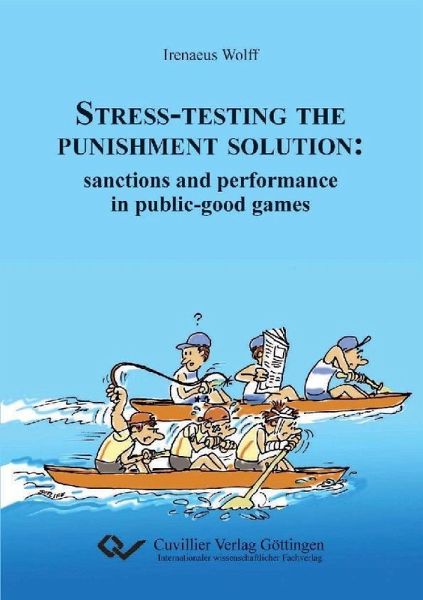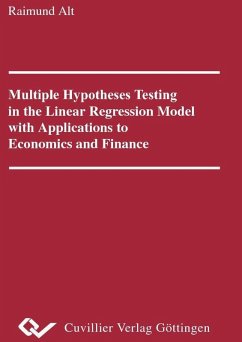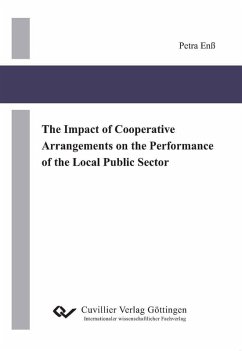
Stress-testing the punishment solution: sanctions and performance in public-good games (eBook, PDF)
Sofort per Download lieferbar
21,46 €
inkl. MwSt.

PAYBACK Punkte
0 °P sammeln!
In economic theory, a public-good game is an abstract description
of a class of situations in which the individual pursuit of one‘s
private interest by all actors leads to an outcome leaving everyone
worse off than had they cooperated. While the game is a
theoretic construct, the class of situation it describes is very real,
in the sense that there is an abundant number of instances in everyday
life displaying the characteristics of a public-good game.
Examples can be found at every level from the small-group
problem of doing the dishes in a share...
In economic theory, a public-good game is an abstract description
of a class of situations in which the individual pursuit of one‘s
private interest by all actors leads to an outcome leaving everyone
worse off than had they cooperated. While the game is a
theoretic construct, the class of situation it describes is very real,
in the sense that there is an abundant number of instances in everyday
life displaying the characteristics of a public-good game.
Examples can be found at every level from the small-group
problem of doing the dishes in a shared at over the communitylevel
question of who volunteers to take on an honorary office,
to the grand scale, when it comes to the exertion of effort to
reduce global warming by reducing one‘s energy usage and litter
production.
What are the main lessons to be learnt from this dissertation?
First and foremost, punishment mechanisms are a double-edged
sword. However, when carefully designed, they can enhance
cooperation and eciency. This feature of punishment mechanisms
is furthermore robust to a number of perturbations. Neither
the introduction of dynamics, retaliation and counter-retaliation,
nor competing other institutions will change this. However, the
working mechanism – and thus, the precise conditions under
which the mechanism will be effective – is still far from clearly
understood.
Dieser Download kann aus rechtlichen Gründen nur mit Rechnungsadresse in A, B, BG, CY, CZ, D, DK, EW, E, FIN, F, GR, HR, H, IRL, I, LT, L, LR, M, NL, PL, P, R, S, SLO, SK ausgeliefert werden.













